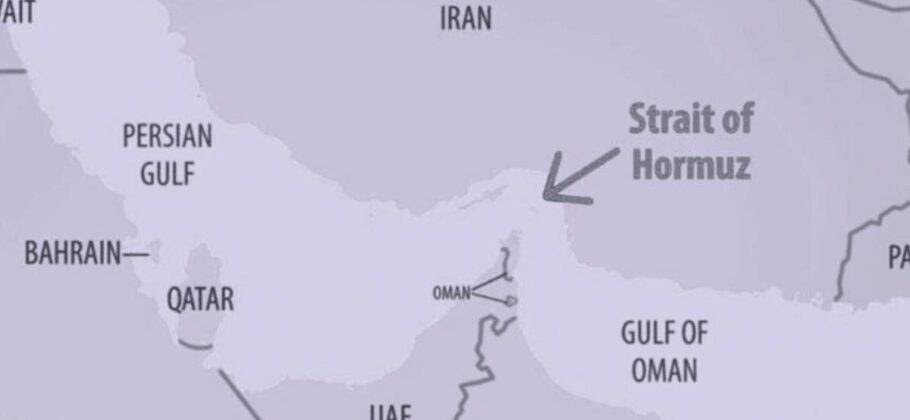Following a series of devastating U.S. airstrikes on its nuclear sites, Iran is now threatening to block the Strait of Hormuz, a move that could throw global energy markets into chaos. The warning comes from senior figures in Iran’s parliament and the Islamic Revolutionary Guard Corps (IRGC), and although the final decision lies with Iran’s Supreme National Security Council, the message is clear: Tehran is prepared to escalate.
“For now, [parliament has] come to the conclusion we should close the Strait of Hormuz, but the final decision in this regard is the responsibility of the Supreme National Security Council,” said Esmail Kosari, a commander in the IRGC and member of the Iranian parliament’s national security commission. In a separate interview, Kosari declared that closing the strait “is on the agenda and will be done whenever necessary.”
Iran’s Foreign Minister Abbas Araqchi refused to rule out the possibility, stating only that “a variety of options are available to Iran.” Iranian state media, often a mouthpiece for regime strategy, has been reinforcing the message that retaliation is coming.
The Strait of Hormuz is one of the most strategically important waterways on Earth. It is a narrow maritime passage that connects the Persian Gulf to the Gulf of Oman and, beyond that, to the Arabian Sea and the Indian Ocean. The strait is just 21 miles wide at its narrowest point, and within that, the shipping lanes for tankers are only about 2 miles wide in each direction. It is flanked by Iran to the north and Oman and the United Arab Emirates to the south, making it a tightly constrained choke point.
Because of its geography, the strait is relatively easy to block. Iran has dozens of options, including deploying naval mines, swarming tankers with fast boats, launching missile strikes from the mainland, and using submarines or drones to harass or halt vessel traffic. Military analysts say even temporary interference could halt traffic for days or weeks.
More than 20 million barrels of oil flow through the Strait of Hormuz each day. That accounts for about 20% of the world’s daily oil consumption, as well as nearly a fifth of global liquefied natural gas trade. Saudi Arabia, the UAE, Iraq, Kuwait, and especially Qatar rely on this route to get their energy exports to global markets. So does Iran itself.
U.S. leaders are warning that any attempt to block the strait would backfire on Iran immediately. “It’s economic suicide for them if they do it,” said Secretary of State Marco Rubio, who also serves as national security adviser. Speaking on Fox News, Rubio added, “Their entire economy runs through the Strait of Hormuz. If they want to destroy their own economy and cause disruptions in the world, that would be their decision.”
Iran exported around 1.84 million barrels of oil per day last month, most of it to China. According to the energy data firm Kpler, about half of China’s seaborne oil imports pass through the Strait of Hormuz. Blocking it would cut Iran off from its most important customer.
“It would be a self-inflicted wound,” said Matt Smith, Kpler’s lead oil analyst. “Cutting off the Strait would stop the flow of its crude exports to China, halting a key revenue stream.”
Vice President JD Vance echoed Rubio’s warning. “If they want to destroy their own economy, that’s their decision. But it would have massive consequences across the globe,” he said on NBC’s Meet the Press.
The United States Calls on China
Recognizing China’s unique position as both Iran’s key economic partner and a major oil importer, U.S. officials are calling on Beijing to pressure Tehran. “I encourage the Chinese government in Beijing to call them about that,” Rubio said. “Because they heavily depend on the Strait of Hormuz for their oil.”
So far, the Chinese government has not issued an official response. But if Iran follows through, China stands to lose more than almost any other country.
While many experts believe the U.S. Navy could quickly reopen the strait if Iran tries to block it, not everyone agrees. The U.S. Fifth Fleet is stationed in Bahrain and has long been tasked with ensuring free passage in the Gulf. It maintains constant patrols, advanced surveillance systems, and a strong naval presence.
Still, some analysts warn that Iran’s ability to disrupt the flow of oil may be underestimated. Bob McNally, a former energy adviser to President George W. Bush, said, “They could disrupt shipping through Hormuz by a lot longer than the market thinks.” He told CNBC that shipping could be interrupted “for weeks or months,” not just hours or days.
ClearView Energy Partners noted that without diplomatic concessions from Tehran, oil prices could “meaningfully” rise above their current levels. Goldman Sachs and Rapidan Energy have warned that prices could spike above $100 per barrel if the disruption lasts.
Iran has long used threats to close the Strait of Hormuz as a political tool, but this time, the risk feels more real. After the U.S. launched airstrikes using over 125 aircraft, 14 bunker-busting bombs, and dozens of Tomahawk missiles, Tehran is looking for a dramatic way to respond.
But the regime’s threat reveals a dangerous pattern: when faced with international pressure or military setbacks, Iran often chooses to lash out at the rest of the world rather than seek diplomatic solutions. Blocking a vital artery of global commerce would not only harm American allies and rivals alike but would also deal a severe blow to Iran’s already fragile economy.
As Eurasia Group analysts wrote, “A move to close Hormuz would be an effective declaration of war against the Gulf states and the U.S.” The group doubts Iran has the strength to take such a step right now. But with hardliners like Kosari pushing for confrontation and a nuclear program in tatters, the regime may decide it has little left to lose.











